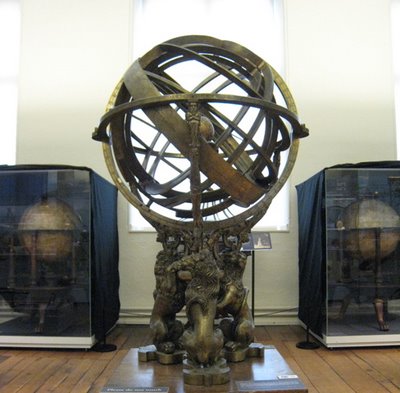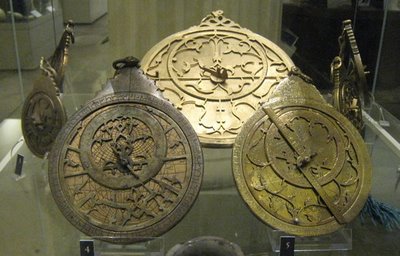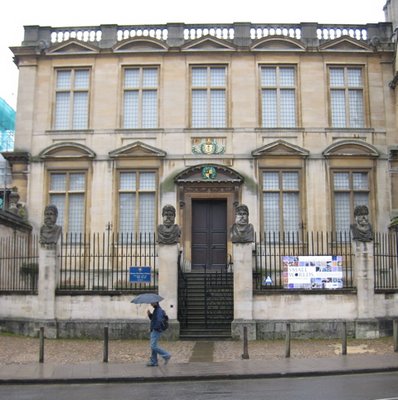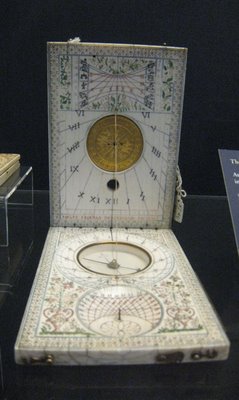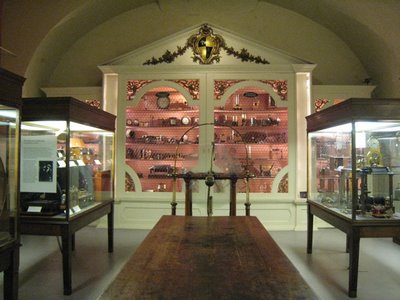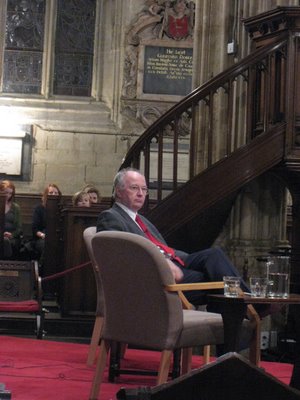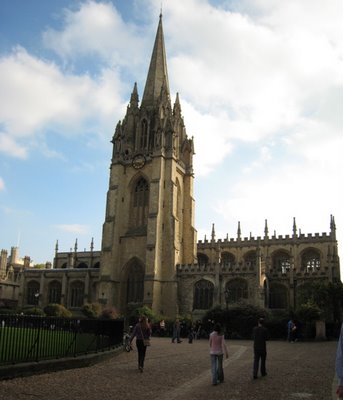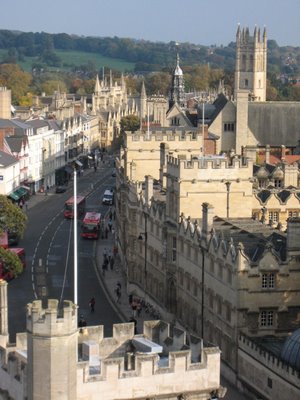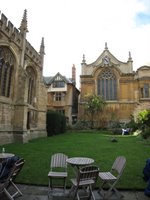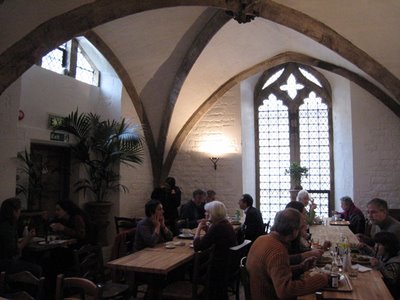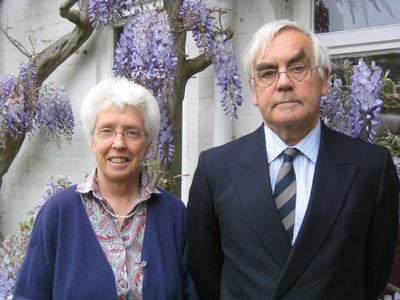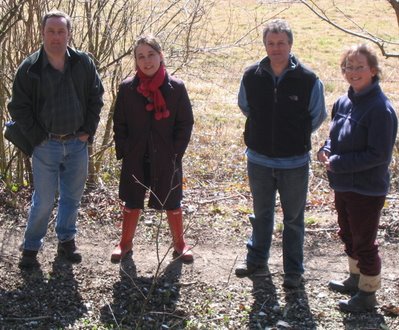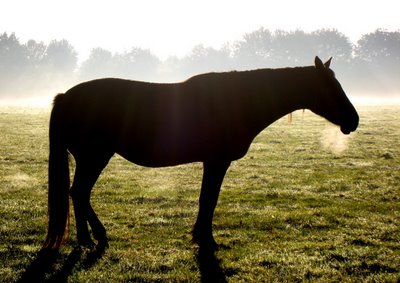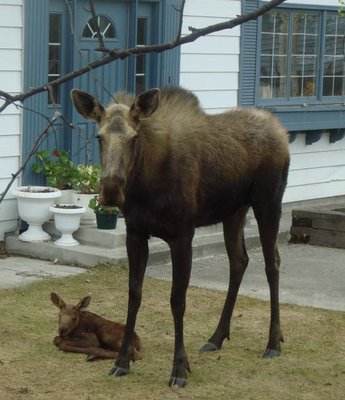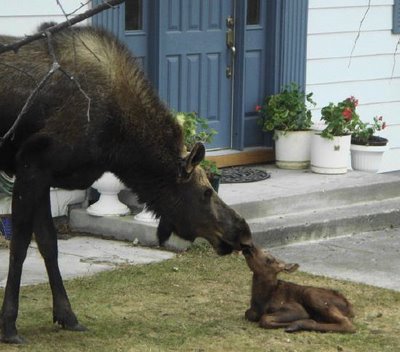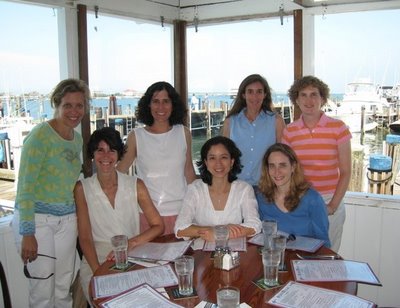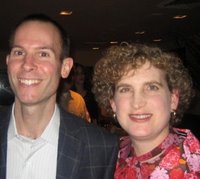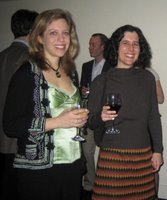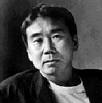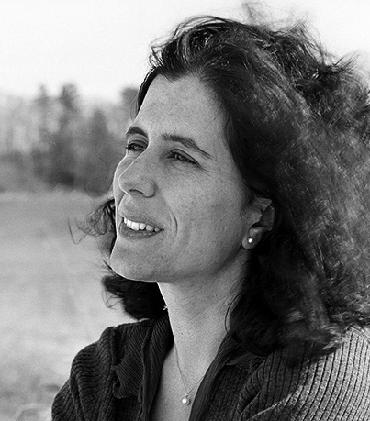Novels About Schools
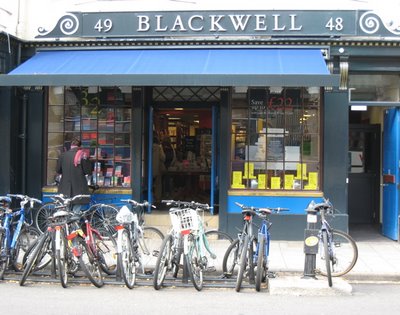 Blackwell's is my favorite bookstore in Oxford, established in 1879. It feels cozy but is enormous like a college library.
Blackwell's is my favorite bookstore in Oxford, established in 1879. It feels cozy but is enormous like a college library.For inspiration writing S.A.D., I have read five good novels about schools. I’m passing the list along in case you’re looking for holiday reading or gifts. On that note, next week's blog might be one day late.
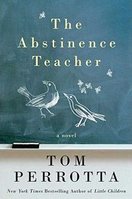 The closest book to my S.A.D. is Tom Perrotta’s The Abstinence Teacher released this fall in the U.S.A. It’s not due in the U.K. until January, so my mother sent me a copy from NYC. The clocks are the only things ahead in England. [AND national health care, public television and punk rock, says my English husband.]
The closest book to my S.A.D. is Tom Perrotta’s The Abstinence Teacher released this fall in the U.S.A. It’s not due in the U.K. until January, so my mother sent me a copy from NYC. The clocks are the only things ahead in England. [AND national health care, public television and punk rock, says my English husband.]Both Perrotta’s and my novel concern evangelicals trying to change the high school curriculum. It's a coincidence as I started S.A.D. last year before his book was published. His novel looks at Sex Ed. while mine looks at Biology and the Intelligent Design vs. Evolution debate.
Perrotta is one of my favorite authors. His novels are at their best when parodying suburban life. Perrotta is clearly a devoted soccer dad, inviting you along for a ride in his minivan with a cynical laugh. Stonewood Heights is neither very liberal nor too conservative and appears the ideal place to raise a family. That is until the evangelicals spread through the community like The Invasion of the Body Snatchers.
The protagonist is a divorced sex-ed teacher and her romantic foil a Born Again former rocker drug abuser. Perrotta is surprisingly good at mastering both the female and the male voices, straight or gay, and creating real characters in tangible settings. He writes very well and manages to make all topics accessible and amusing.
The Abstinence Teacher is a catalogue of sexual dysfunction, but it only tackles teen sex as flashbacks by the middle aged characters. This seems a curious omission since teenage sexuality is a bigger issue now than in the 1980's. The book is tastefully done, not prurient, and based on a solid understanding of evangelicalism. It has gotten a couple of favorable reviews in the NYT and deserves the attention.
I also enjoyed Perrotta's Little Children, a humorous tale of suburban malaise. His first novel, Election, took six years to sell, and the movie writes sold first, staring Reese Witherspoon and Matthew Broderick. That one is also set in school, centering on a high school president election.
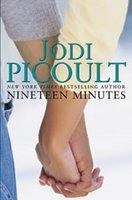 Another book set in an American public (ie. state) high school is Jodi Picoult’s latest, Nineteen Minutes. Picoult’s novel tries to understand school shootings from the perpetrator’s perspective. It’s a disturbing look at bullying and the shortfall of community. The accused shooter is almost as much a victim as his targets.
Another book set in an American public (ie. state) high school is Jodi Picoult’s latest, Nineteen Minutes. Picoult’s novel tries to understand school shootings from the perpetrator’s perspective. It’s a disturbing look at bullying and the shortfall of community. The accused shooter is almost as much a victim as his targets. Picoult is a master of writing fast-paced, topical stories centered on families. Her books appeal to both teens and adults as she dexterously bridges the generation gap with the sensitivity of a former teacher. She's had many best sellers, even internationally. On almost any airplane ride, you'll find a woman reading one and gripped. It's not fluff: Picoult does her research, tackles the issues and writes well.
Her work is distinct, a genre to itself. Amazingly, Picoult produces a new novel every nine months. She notes with amusement that it is the same duration as pregnancy. It helps that her husband is at home raising their three children. Despite the upsetting topics, her books are easy reads. Another one that questions conventional ethics in the new world is My Sister’s Keeper. I just started The Tenth Circle.
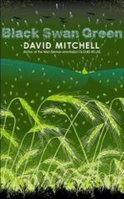 David Mitchell’s Black Swan Green is another book about bullying in school, but his tale takes place at an English state school during the 1980’s. It’s full of fun, nostalgic trivia. The narrator is a 13-year-old boy and a secret poet with an embarrassing stammer. The accounts of bullying are so real that they are hard to read, but Mitchell balances the darkness with humor.
David Mitchell’s Black Swan Green is another book about bullying in school, but his tale takes place at an English state school during the 1980’s. It’s full of fun, nostalgic trivia. The narrator is a 13-year-old boy and a secret poet with an embarrassing stammer. The accounts of bullying are so real that they are hard to read, but Mitchell balances the darkness with humor. Mitchell’s voice is original and engaging. I’m looking forward to reading more of his work. Structurally Black Swan Green reads like interlocking short stories or some YA chapter books. My 13-year-old son enjoyed it too, although it is more geared towards an adult audience. It’s a book that works on two levels of maturity. My husband is reading it now. It’s one of the best books I’ve read this year. It’s so well written.
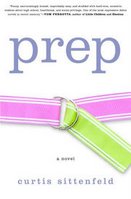 Curtis Sittenfeld’s Prep is about the elite world of New England boarding schools. A Midwesterner gets a scholarship to a school similar to Groton (Sittenfeld is an alum.) Leigh struggles academically and socially, making poor choices, especially sexually. She obsesses over a boy who is as accepted as she is spurned. Prep is a keen observation of setting and character. Unfortunately the protagonist is not likable enough to be sympathetic. Still it is an interesting view of privilege and class.
Curtis Sittenfeld’s Prep is about the elite world of New England boarding schools. A Midwesterner gets a scholarship to a school similar to Groton (Sittenfeld is an alum.) Leigh struggles academically and socially, making poor choices, especially sexually. She obsesses over a boy who is as accepted as she is spurned. Prep is a keen observation of setting and character. Unfortunately the protagonist is not likable enough to be sympathetic. Still it is an interesting view of privilege and class. Like Picoult’s books, Prep has been popular with teenagers as well as adults. Prep is far less appropriate for teens than a Picoult novel. Picoult suffuses her narratives with moral lessons on safe sex and the consequences of bullying, whereas Sittenfeld paints a realistic portrait of degradation like rotting, over-priced fruit. There is a voyeuristic feel to Prep, but the writing is sophisticated.
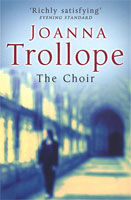 If you’re looking for a more cozy-up-by-the-fire book, I’d recommend Joanna Trollope’s The Choir, even for those not religiously inclined. It’s a heartwarming story of village life in England where the clash between old and new generations takes on layers of meaning. Trollope writes well and is engaging, although sometimes her myriad of characters are hard to follow.
If you’re looking for a more cozy-up-by-the-fire book, I’d recommend Joanna Trollope’s The Choir, even for those not religiously inclined. It’s a heartwarming story of village life in England where the clash between old and new generations takes on layers of meaning. Trollope writes well and is engaging, although sometimes her myriad of characters are hard to follow. Trouble starts when the vicar proposes to renovate the church at the expense of the boys’ choir. The choir school dates back to King Henry VIII but lacks legal standing. The town is torn apart by the controversy that tests old friendships and divides families. In this way, The Choir is similar to S.A.D. as an exploration of the inter-personal, quirky world of small town politics and the danger of mixing church and state.
 Happy Holidays and Good Reading!
Happy Holidays and Good Reading!Click on "comments" at the bottom of Unusual Holiday Lights for more school books.
If you know of other good novels on schools, please comment below.
Labels: books, bookstores, England, Oxford, politics, S.A.D., schools
